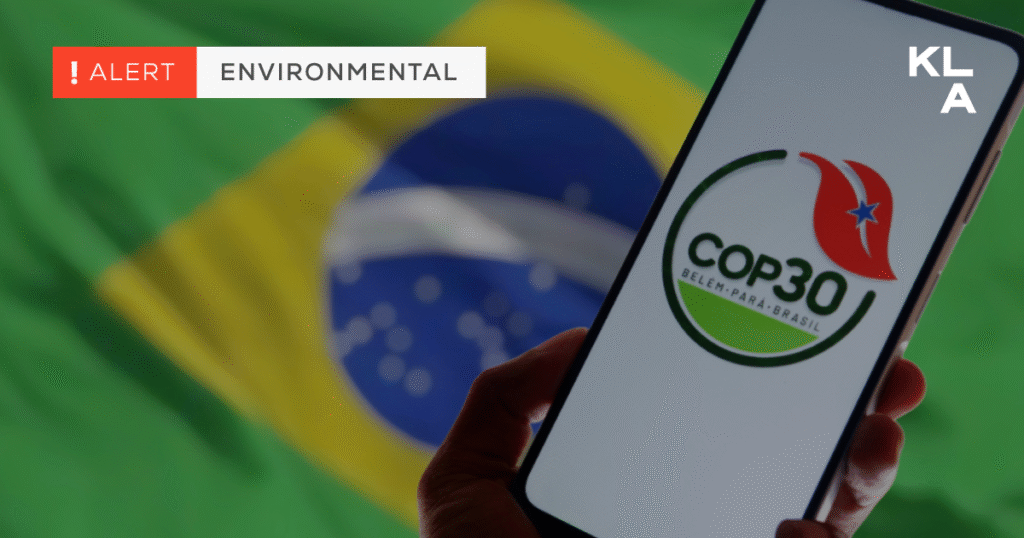The country arrives at COP30, taking place from November 10–21 in Belém, with a revised and more ambitious NDC (Nationally Determined Contribution), alongside ongoing public policies. Among its commitments are:
- A 48.4% reduction in emissions by 2025 and 53.1% by 2030 (based on 2005 levels);
- Zero illegal deforestation by 2030;
- Climate neutrality by 2050;
- Adaptation plans at all levels of government; and
- A just energy transition and expansion of renewable sources.
The Brazilian government proposes a COP focused on implementation rather than merely negotiating targets. To this end, six thematic pillars and thirty key objectives have been defined. The Celeiro de Soluções (“Solutions Hub”) platform already brings together hundreds of mitigation and adaptation initiatives with scalability potential.
In the field of financing, Brazil and Azerbaijan presented a roadmap to mobilize USD 1.3 trillion per year by 2030, focusing on developing countries. Proposed measures include:
- Reforms in multilateral development banks
- Expansion of blended finance instruments
- Incentives for the private sector
- Strengthening carbon pricing mechanisms
- Transparency in financial flows
In addition to international coordination, Brazil has launched a series of domestic climate finance instruments:
- Tropical Forest Forever Fund (TFFF) – compensation for forest conservation
- Climate Fund (BNDES) – support for projects in mobility, energy, and waste management
- Brazilian Sustainable Taxonomy – criteria for green investments
- Regulated carbon market – under development
- Hybrid financing models – integration of public and private resources
The climate issue presents both challenges and opportunities. At COP30, progress is expected on three main fronts:
- Strengthening multilateralism and climate governance, with greater engagement of the third sector as a mobilizer and driver of public policy
- Effective climate finance measures, particularly for developing countries, through innovation and technology and by supporting nature-based solutions
- Consolidation of a positive agenda for the energy transition, with clear targets and transparent dialogue on the role of fossil fuels
For Brazil, COP30 may represent a concrete opportunity for companies and society as a whole to turn commitments into action—particularly at the subnational government level—through the formulation and revision of legal frameworks, regulatory risk assessment, and the development of legally sound solutions for a just and effective energy transition.

